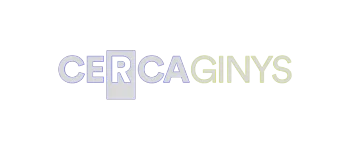Ethnological heritage, maritime society and culture
Ethnological heritage, maritime society and culture (PESCUM). HAR2010-15566
Period
2010-2013
Researchers: Dr. Eliseu Carbonell (IP, ICRPC), Gemma Domènech (ICRPC), Lada Servitja (ICRPC), Joan Lluís Alegret (Universitat de Girona), Alfons Garrido (Universitat de Girona), Nadja Fava (Universitat de Girona), David Florido (Universidad de Sevilla), Antonio García-Allut (Universidade da Coruña), Dionisio Pereira (Universidade da Coruña), Juan Antonio Rubio-Ardanaz (Universidad de Extremadura)
Juan Antonio Apraiz (Eusko-Ikaskuntza), Sabrina Doyon (Université Laval)
Description
We are currently witnessing a reformulation in heritage terms of maritime society and culture in many places. If historically the sea and the coast have tended to be considered basically as a source of resources, a space for exchange and a border, recently we have observed the emergence of new dynamics that consist of a revaluation of the sea, the maritime landscape, fishing, navigation and its infrastructures based on the concept of ethnological heritage.
The PESCUM project proposes to study the discourses, representations and actions relating to the maritime area in the Mediterranean, Atlantic and Cantabrian sides of the Spanish State among the different actors involved in its heritage, among which we highlight: The fishing-shellfish, artisanal and industrial sector, as well as recreational and underwater fishing; the sports, leisure and nautical tourism sector; The environmental movement and / or the scientific community linked to marine reserves; The institutions, groups and entities dedicated to the conservation and promotion of maritime heritage; and finally, the administrative managers of ports, coastal areas and architectural elements concerned in operations of a heritage nature.
Objectives
The main aspects arising from the purpose of this project are:
1. To know the state of development and characteristics of the patrimonial process that is taking place in the maritime field in the recent years.
2. To rethink the boundaries between natural and cultural maritime heritage in terms of the discourses of social actors who are themselves involved in the heritage process.
3. To support the development of local communities through coastal maritime heritage as an element of social cohesion and cultural promotion.
Methodology and work plan
Phase I: Development of a map and state of the art
The first year of research is to develop a map and state of the art about the maritime heritage in Andalusia, Catalonia, Galicia and Basque Country. The activity consists in gathering information from governments and stakeholders on initiatives that are currently underway about heritage and sea. All this information is entered into a database developed for this purpose.
Phase II: Fieldwork
From the data obtained in the first phase begins the second phase which will last for a year and a half and will have as fundamental element in-depth studies of specific cases of maritime heritage. Our team is composed mainly by anthropologists, so that the methodology used to conduct in-depth studies will be ethnographic. But the team also has art historians and an architect to better assess the patrimonial planning and architectural elements linked to the sea.
Phase III: Synthesis and processing of results
During the third and final phase we will carry out the synthesis of the project and preparing the results as a monograph, articles and presentations at national and international level. We will also work to develop proposals and recommendations for the future of research in maritime heritage conservation, management and dissemination.




Institut Català de Recerca en
Patrimoni Cultural ICRPC
observatoridepublics@icrpc.cat
Tel. 972 486 158



- Sitemap
- |
- Legal Notice
- |
- Cookies usage
- |
- Privacy policy
- |
- Contact
- |










